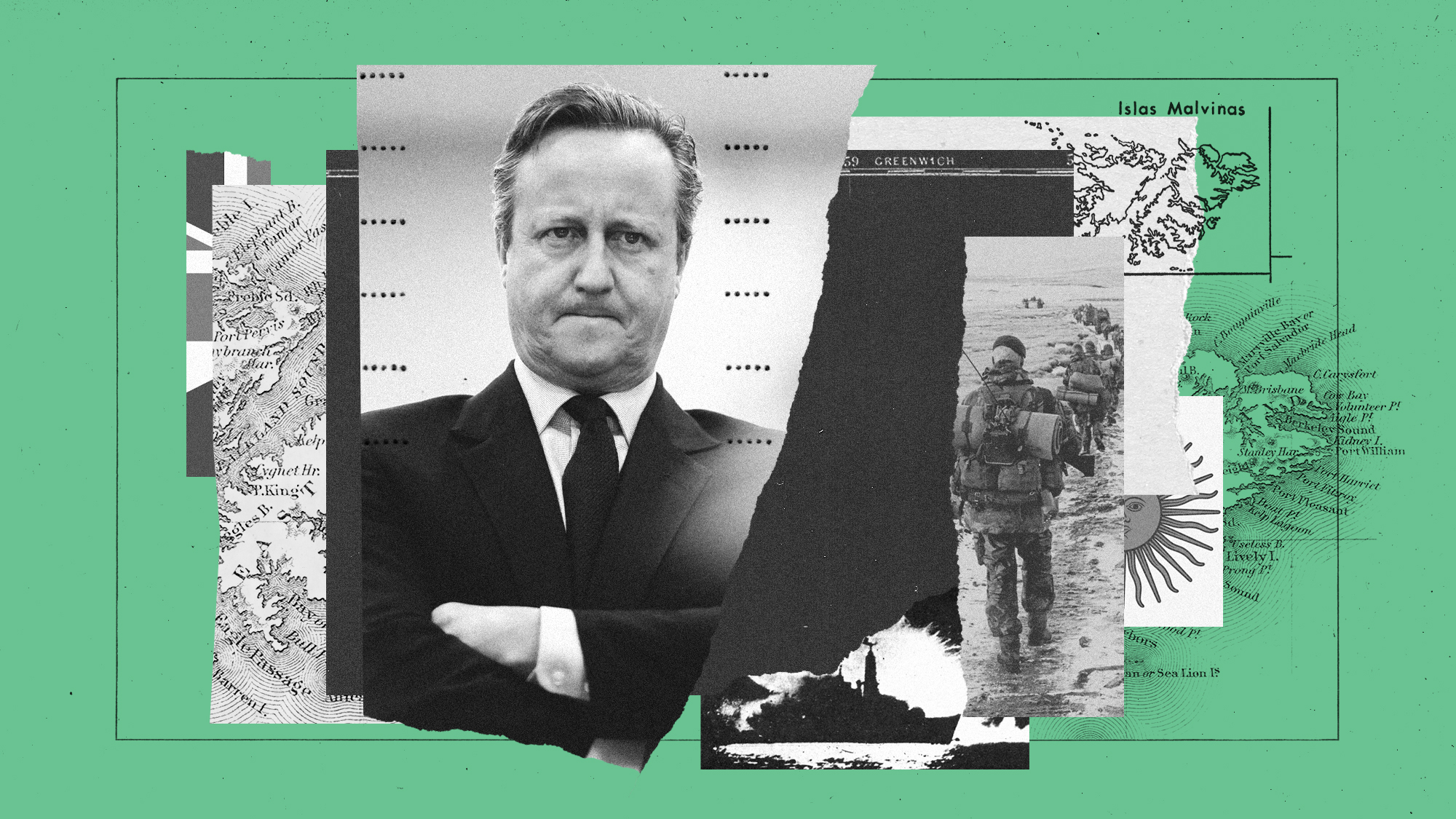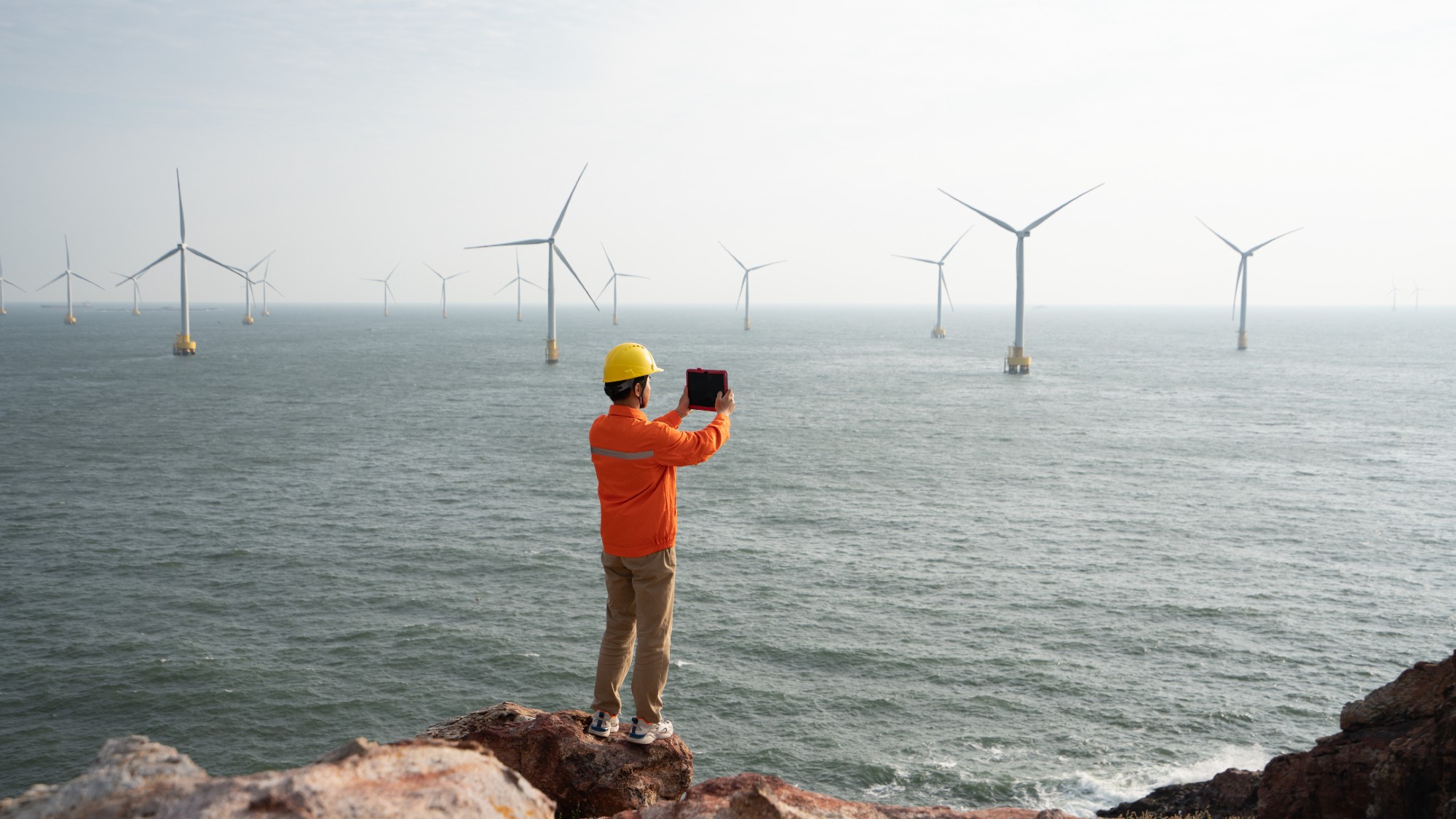Can Cameron put the Falklands sovereignty dispute to bed?
Foreign secretary says issue 'not up for discussion' ahead of visit amid renewed push from Argentina

A free daily email with the biggest news stories of the day – and the best features from TheWeek.com
You are now subscribed
Your newsletter sign-up was successful
David Cameron said that British sovereignty over the Falkland Islands would "not be up for discussion" ahead of his visit to the South Atlantic today.
The foreign secretary is the first cabinet minister to travel to the Falklands since 2016, fulfilling a commitment made last year by his predecessor James Cleverly in response to Argentina "flexing" its muscles over the disputed islands.
Argentina has long laid claim to the self-governing British overseas territory, which has been under British sovereignty since 1833. In 1982, the military junta that ruled Argentina invaded the islands, known in Spanish as "Islas Malvinas", sparking a 10-week war that claimed the lives of 255 British servicemen, three islanders and 649 Argentinian personnel.
The Week
Escape your echo chamber. Get the facts behind the news, plus analysis from multiple perspectives.

Sign up for The Week's Free Newsletters
From our morning news briefing to a weekly Good News Newsletter, get the best of The Week delivered directly to your inbox.
From our morning news briefing to a weekly Good News Newsletter, get the best of The Week delivered directly to your inbox.
What did the commentators say?
Speaking before his trip, which kicks off a multi-country tour of South and North America, Cameron said the Falkland Islands remained "a valued part of the British family, and we are clear that as long as they want to remain part of the family, the issue of sovereignty will not be up for discussion".
His visit comes amid a "renewed push from Argentina over the sovereignty of the contested territory", said Politico. Argentina's new president, Javier Milei, has insisted that his country has "non-negotiable" sovereignty over the islands. "The Malvinas are Argentinian," Milei said during a election TV debate.
The "radical libertarian", who claimed power in December, has "suggested the UK should approach the issue in a similar way to the handover of Hong Kong to China in 1997", said Sky News. "That agreement, however, followed the end of a 99-year lease."
Despite the persistent calls from Argentina, in a 2013 referendum, 99.8% of voters on the Falkland Islands opted to remain a UK overseas territory, with just three people voting against.
A free daily email with the biggest news stories of the day – and the best features from TheWeek.com
Argentina's claim is based on having inherited the islands from the Spanish crown in the early 1800s, and also their proximity to the South American mainland – the archipelago lies 300 miles from Argentina and 8,000 miles from the UK. Britain "rests its case" on its "long-term administration of the Falklands", said BBC News, and on "the principle of self-determination for the islanders, who are almost all of British descent".
Last March, Argentina pulled out of a 2016 agreement that sought to improve cooperation in the South Atlantic between the two countries. Buenos Aires then scored "a major diplomatic win" last summer when the term "Islas Malvinas" was used for the first time in an official capacity by the European Union in a communiqué with Latin American nations, said Politico.
Behind the scenes, London had fought a "rearguard action", said the news site, "applying pressure at the very highest level to discourage Brussels from including the wording".
What next?
Milei has previously downplayed the prospect of military action over the Falklands, stressing that war "is not a solution" and that "we have to make every effort to recover the islands through diplomatic channels". However, his government has announced plans to buy fighter jets, submarines and warships as part of a tripling of its defence budget by 2032, in order to make the armed forces "fundamental institutions of the country".
At the same time, there is "heightened concern" in the UK over the Falklands' security, said The Telegraph, after revealing that the Royal Navy has abandoned major warship patrols because of ship shortages.
Admiral Lord Alan West, who was awarded a Distinguished Service Cross for his part in the Falklands War, told the paper earlier this month that an invasion of the islands was still "highly unlikely at the moment". But he called on the Ministry of Defence to ensure it has "sufficient defence assets in the Falklands to show that if anyone did anything stupid, that they would have some assets that they would have to overcome".
-
 Health insurance: Premiums soar as ACA subsidies end
Health insurance: Premiums soar as ACA subsidies endFeature 1.4 million people have dropped coverage
-
 Anthropic: AI triggers the ‘SaaSpocalypse’
Anthropic: AI triggers the ‘SaaSpocalypse’Feature A grim reaper for software services?
-
 NIH director Bhattacharya tapped as acting CDC head
NIH director Bhattacharya tapped as acting CDC headSpeed Read Jay Bhattacharya, a critic of the CDC’s Covid-19 response, will now lead the Centers for Disease Control and Prevention
-
 How are Democrats turning DOJ lemons into partisan lemonade?
How are Democrats turning DOJ lemons into partisan lemonade?TODAY’S BIG QUESTION As the Trump administration continues to try — and fail — at indicting its political enemies, Democratic lawmakers have begun seizing the moment for themselves
-
 How did ‘wine moms’ become the face of anti-ICE protests?
How did ‘wine moms’ become the face of anti-ICE protests?Today’s Big Question Women lead the resistance to Trump’s deportations
-
 How are Democrats trying to reform ICE?
How are Democrats trying to reform ICE?Today’s Big Question Democratic leadership has put forth several demands for the agency
-
 Why is Tulsi Gabbard trying to relitigate the 2020 election now?
Why is Tulsi Gabbard trying to relitigate the 2020 election now?Today's Big Question Trump has never conceded his loss that year
-
 Will Democrats impeach Kristi Noem?
Will Democrats impeach Kristi Noem?Today’s Big Question Centrists, lefty activists also debate abolishing ICE
-
 Do oil companies really want to invest in Venezuela?
Do oil companies really want to invest in Venezuela?Today’s Big Question Trump claims control over crude reserves, but challenges loom
-
 What is China doing in Latin America?
What is China doing in Latin America?Today’s Big Question Beijing offers itself as an alternative to US dominance
-
 Why is Trump killing off clean energy?
Why is Trump killing off clean energy?Today's Big Question The president halts offshore wind farm construction